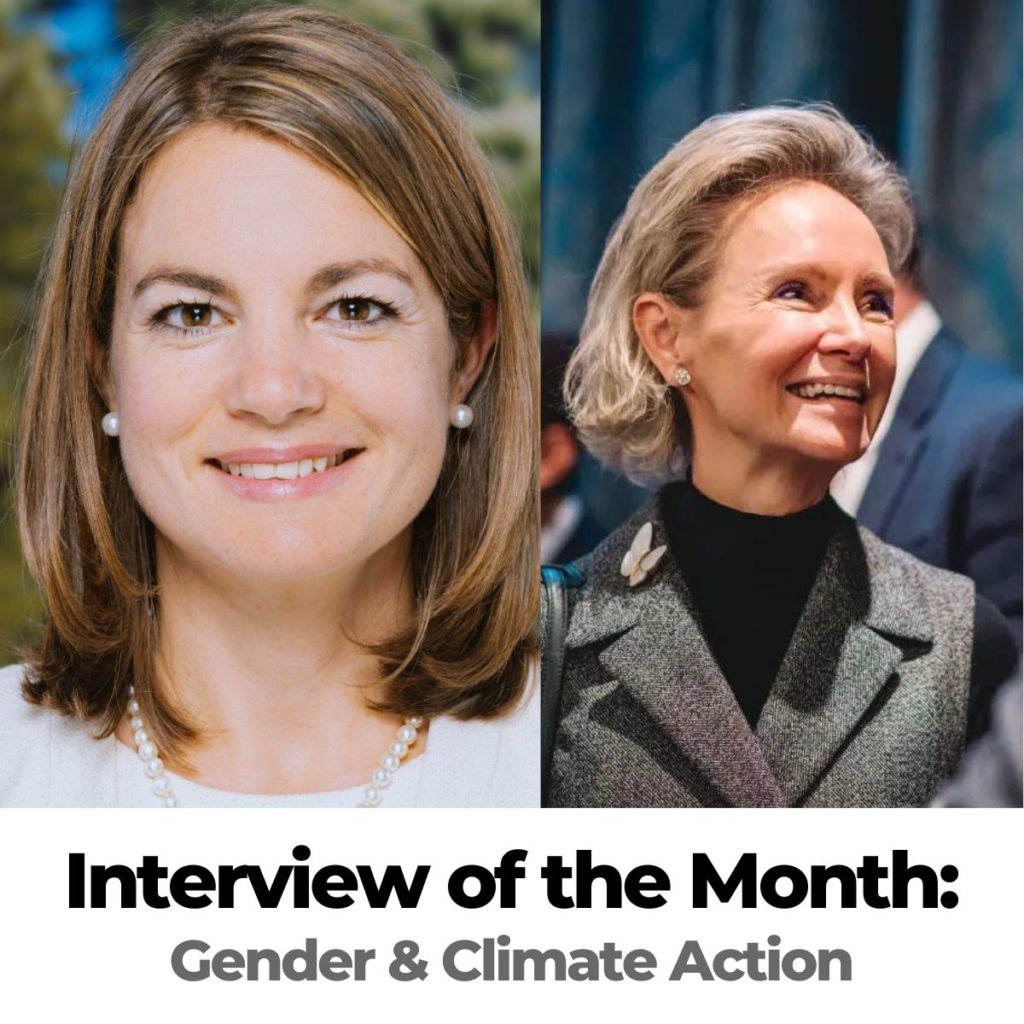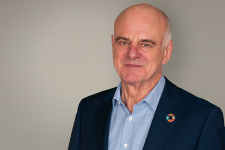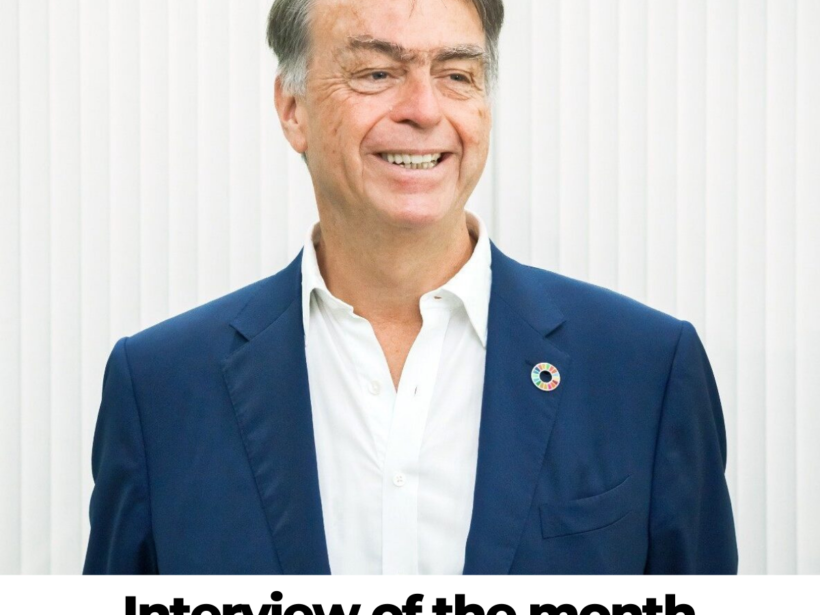
SHE Changes Climate or How to Close the Gender Gap and Accelerate Climate Action
This month, for this special edition of our newsletter dedicated to gender, we had the privilege to interview Elise Buckle and Dominique Brustlein-Bobst, respectively Co-Founder and Ambassador for SHE Changes Climate, an NGO dedicated to increasing female representation at all levels of climate decision making by influencing key players, campaigning for public support, collaborating with counterparts and amplifying the overlooked. With them, we dive deep into the issues of gender disparity in the world of finance and we tackle ways to accelerate climate action by putting women at the center stage of this fight.
In March we celebrate International Women’s Day, so let’s first talk about the elephant in the room. Recent studies on gender diversity show that the finance industry is not performing well, with only 15% of women holding partner positions in financial services firms. What are the implications of this? Why is it important to strive for greater gender diversity?
This is true, and we should add that only 2% of the bank CEOs are women. SHE Changes Climate is proactive on this issue and included more details on the underrepresentation of women in managing positions in our 2022 Issue Brief entitled Strengthening Solutions through Inclusive Leadership. This is a systemic issue, and we are not on the right path to attaining gender parity. According to the latest World Economic Forum Report and Global Gender Gap Report, it will take another 132 years to close the global gender gap.
This is even more acute in the finance sector. The implication is quite clear: it means that mostly men are the decision makers when it comes to the future of the economy, and in choosing which sectors to invest in. However, there is plenty of evidence and data showing that when companies have at least 50% of women on their Boards, they perform better on both finance and on ESG.
Further, women and youth tend to push the leadership to adopt stronger and more ambitious climate and sustainability policies and plans. Diversity and inclusion are essential if we want to succeed in a rapid and just energy transition. At SHE Changes Climate, we are an inclusive and diverse movement, and we want men to be part of this transformation as well. So, it doesn’t mean removing men from their leadership positions. We are complementary: we need both men and women leading the way together in this transformation. This is also why we are calling for a new model of shared leadership at all levels of the decision-making process.
SHE Changes Climate is putting women in a central role to accelerate climate action, why are you taking this approach?
Women represent more than 51% of the world population, but they are greatly impacted by climate change. Overall, around 80% of refugees are women. They also represent most people who live under the poverty line. And in most developing countries, they don’t have the same access to economic resources and to information technology, cell phones or even basic knowledge to survive when a natural disaster hits their communities. This is why in Pakistan, for example, there are some groups now providing swimming lessons for women and girls so they can survive in the case of a massive floods.
At the same time, women are also the champions of resilience. They are the ones holding the community together, finding resources and solidarity networks, providing food for their families, even when a drought hits their village.
But even more importantly, we truly believe that women are the solutions “multipliers,” the pioneers and the leaders that can really help the whole society transform itself by adopting a more sustainable model.
There are plenty of examples of women leaders (such as Angela Merkel, or Jacinda Ardern) who have managed to get their countries through the COVID 19 pandemic with better health protection for everyone. Leading with empathy, and deep listening are essential when dealing with a systemic crisis.
The world needs more women leaders at the table of UNFCCC climate negotiations and at all levels of decision-making, in governments, Parliaments as well as in business. When women are at the table of decisions, the process usually delivers better outcomes for the collective good. This is also true for peace talks.
On your website, you say you believe in “radical collaboration” to move the needle on sustainability and climate action. What is radical for you? What does that type of collaboration look like?
We are facing a planetary emergency, and a triple crisis for climate, people, and nature. The most vulnerable are paying a high price. And we should all act together, urgently, to address this crisis that is – and will be – affecting all human beings. We were all born on planet Earth, this is our only home. The challenge is that our economic and political systems are still geared up to defend nationalistic and individualistic interests.
We believe we can only address the climate emergency by working as “One team for One Planet”. That requires a lot of courage, to let go of some of our old legacies and loyalties, and embrace a radical form of collaboration, going beyond egos, logos, and institutional boundaries. The most powerful alliances and partnerships can unlock the power of collective action by bringing everyone around the table with an equal voice to find systemic solutions to systemic issues. That means working with the UN, governments, companies, unions, farmers, indigenous people, spiritual leaders, environmental NGOs, health associations, etc., and with a diversity of people in terms of gender, race, sexual orientation, or cultural origin. When we find the common denominator, we can make magic happen; collective action then really takes off for the collective good.
Finance obviously has a huge role to play in the fight against climate change, what are the main steps you would like to see the finance industry take to credibly combat climate change?
ESG reporting was a first step, and an important one to raise awareness about social and environmental issues and make these issues mainstream in the sector. The work started by the TCFD (Task Force of Climate related Financial Disclosure) was also essential to better manage and mitigate climate risks. The same approach is now being explored for nature, although it is more complex to agree on a matrix and measurable indicators for biodiversity.
What needs to happen now is more credible action. We have enough knowledge, science, data, and reports to guide us. How do we make the transition to a net zero economy happen? Global emissions are still on the rise, even 7 years after the Paris Agreement was approved by nearly all nations of the world. Al Gore gave a sobering speech in Davos: the financial system is still feeding our fossil fuel addiction. Every day, our Western economies are still giving 100 million dollars a day to Russia for fossil fuels. We can expect 1 billion climate refugees within 50 years. And yet last year, 60 banks invested 740 billion in new fossil fuel assets. At this stage, incremental change is not enough. Greening a few percentages of the whole portfolio of investments won’t make it. We really need a systemic transformation of the financial system, with more and better economic incentives to phase out fossil fuels and fund clean energy access for all. Governments need to change the rules of the game with better and stronger regulations, as well as international coordination, especially among G20 countries, to enable a levelled-off playing field.
What is the one thing missing to push organizations and individuals to unite to accelerate climate action?
One thing that is missing is the spirit of radical collaboration and shared leadership which prevailed at the time of the Paris Agreement. It has been clearly eroded by the rise of nationalism (in the U.S., Russia, but also in Europe), the COVID 19 crisis, and now the war and its cascading effects on the food and energy markets. When there is fear, people tend to withdraw and narrow down their views to their immediate short-term interests. But no one is immune to climate change. What is at stake is much bigger.
By going beyond planetary boundaries, we are entering into the Anthropocene era, with human beings having an irreversible impact on the biosphere, for many years to come. As we speak, Antarctic Sea ice hits a record low, with scientists warning that they have never seen such an extreme situation that could cause a massive sea rise. The financial system is blind to the risk as it hasn’t materialized yet. This is why it is so urgent and essential to align quickly long-term and short-term economic incentives through public-private partnerships and well-thought-out regulations.
Dominique Brustlein-Bobst, Ambassador for SHE Changes Climate Switzerland & Elise Buckle, Co-Founder of SHE Changes Climate
Invitation: you are welcome to join us on March 8th for International Women’s Day for a special event taking place at the Geneva Press Club : https://www.shechangesclimate.org/news/embraceequ




